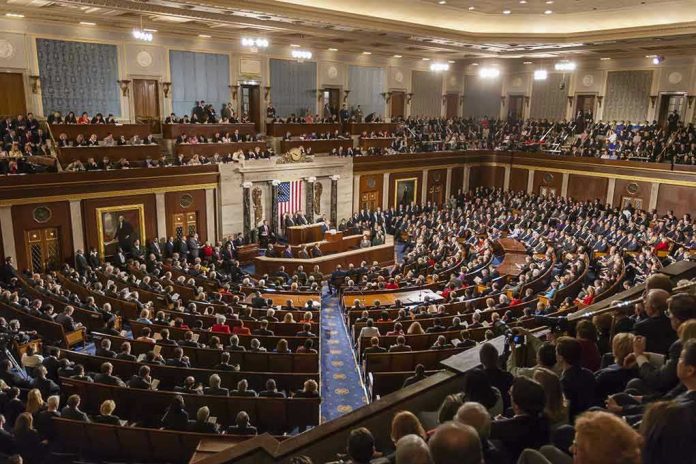
America’s political future could hinge on a single Senate rule—and Donald Trump is daring Republicans to defy decades of tradition and kill the filibuster before the nation, in his words, “doesn’t survive.”
Story Snapshot
- Trump again demands Republicans “terminate” the filibuster, calling GOP leaders “weak” if they fail
- The filibuster, a Senate tradition, stands as the main procedural roadblock to passing partisan legislation
- Trump frames the issue as existential: either end the filibuster or let “deranged” Democrats destroy America
- Republican hesitancy and the legacy of the rule threaten to fracture the party’s strategy and image
Trump’s Filibuster Ultimatum: Crossroads for the GOP
Donald Trump does not waste words or time on nuance when it comes to Senate rules. His latest demand to “terminate” the filibuster lands like a thunderclap: Republicans, he warns, face an existential test of will. The filibuster, which requires 60 votes to advance most legislation, has for years been the graveyard of ambitious partisan bills. For Trump, that’s not a procedural quirk to be respected—it’s a weapon handed to political adversaries. Either Republicans show spine, he warns, or risk the “survival” of the nation itself.
Republicans, already fractured between Trump loyalists and institutionalists, now face a dilemma. The filibuster is a relic of Senate tradition, intended to foster consensus and temper majority rule. To Trump, it’s a symbol of “weakness.” His message is simple: the era of decorum is over, and the GOP must act with the urgency of a party under siege. This uncompromising posture forces Senate Republicans to decide whether to shatter tradition for political gain or risk Trump’s wrath—and, perhaps, the loyalty of his base.
Filibuster’s Legacy and the Stakes for the Senate
The filibuster’s defenders frame it as a crucial check on power, a barrier against the tyranny of narrow majorities. Critics, energized by Trump, argue it’s a tool for minority obstruction—one increasingly exploited in a polarized era. The stakes, Trump insists, are nothing less than the nation’s survival. He paints Democrats as “deranged,” bent on reshaping America if given the smallest procedural opening. For the GOP, the choice is stark: uphold a tradition, or heed Trump’s call and risk setting a precedent that could haunt them if power shifts again.
Senate leaders like Mitch McConnell have long resisted abolishing the filibuster, warning it would erode what little bipartisanship remains. But Trump’s pressure campaign has changed the calculus. The president’s willingness to publicly berate his own party over the rule signals he sees this as a defining issue—one that will test not just legislative resolve, but the party’s very identity.
Political Gamble or Necessary Evolution?
Ending the filibuster would mark a seismic change in Senate procedure, unleashing a flood of legislation if one party controls both chambers and the White House. Trump’s supporters argue that Democrats will eliminate it the moment it serves their interests, so Republicans should act first. Skeptics warn that abolishing the rule could backfire spectacularly, leaving Republicans powerless if the political pendulum swings. The debate is no longer academic; it’s a struggle for the soul of the GOP, with Trump’s voice ringing loudest in the echo chamber of conservative media.
Trump’s relentless message—don’t be “weak and stupid”—sets the tone for the party’s immediate future. Senate Republicans who resist his call risk being branded as obstacles to the MAGA agenda, while those who acquiesce gamble with institutional norms. With each tweet and rally, Trump keeps the issue alive, daring his party to act or be left behind. The next move belongs to Republican senators. Their decision could reshape not just the legislative calendar, but the very fabric of American governance.
Sources:
Government shutdown updates: Thune rebuffs Trump’s repeated call to change filibuster

